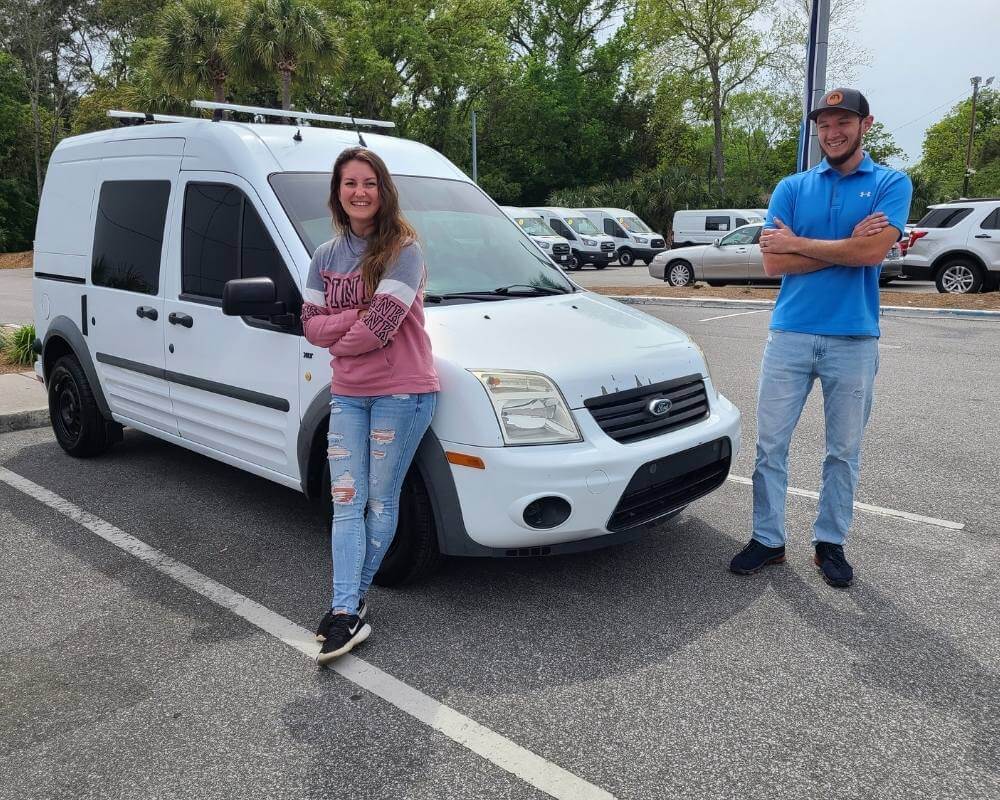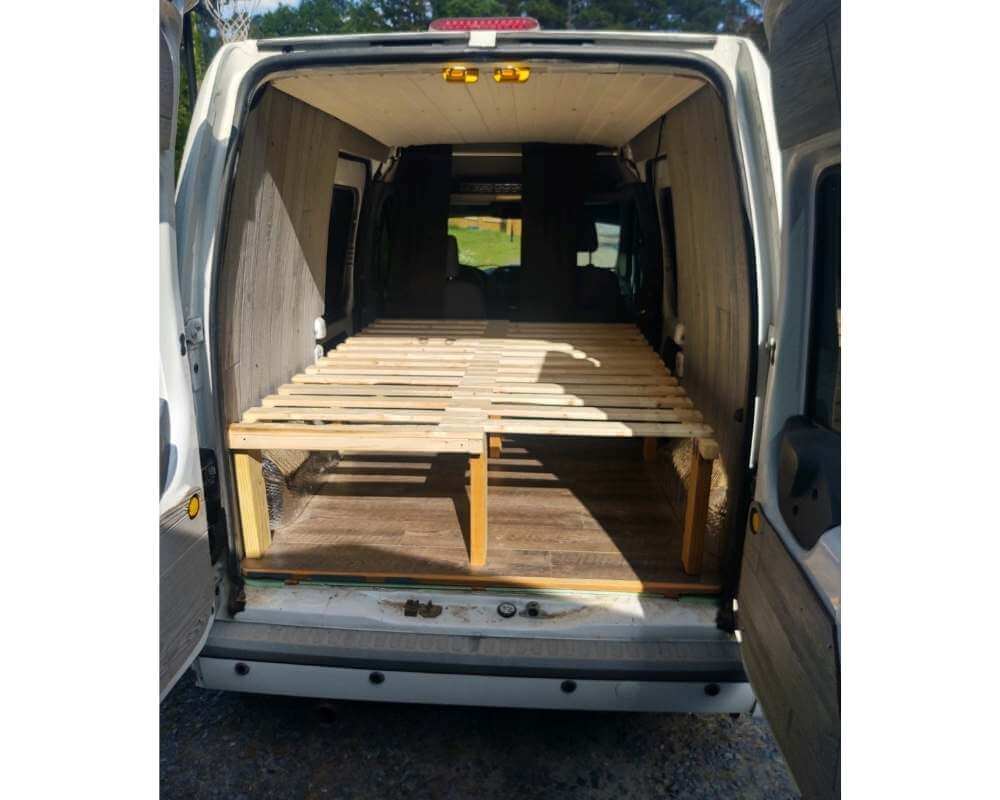Last Updated on August 5, 2024 by Nikole
Living on the road in a camper van can be an exhilarating and liberating experience. However, it’s essential to balance the adventure with environmental responsibility.
By adopting eco-friendly practices, you can minimize your carbon footprint and make your travels more sustainable.
Becoming greener in your van could mean building your windows from reusable material or a simple switch of your regular soap to a more eco-friendly option.
Here’s a comprehensive guide to help you be more eco-friendly while enjoying life on the road in your camper van.
This post may contain affiliate links, which means I’ll receive a commission if you purchase through my links, at no extra cost to you. Please read full disclosure for more information.
Choosing an Eco-Friendly Camper Van
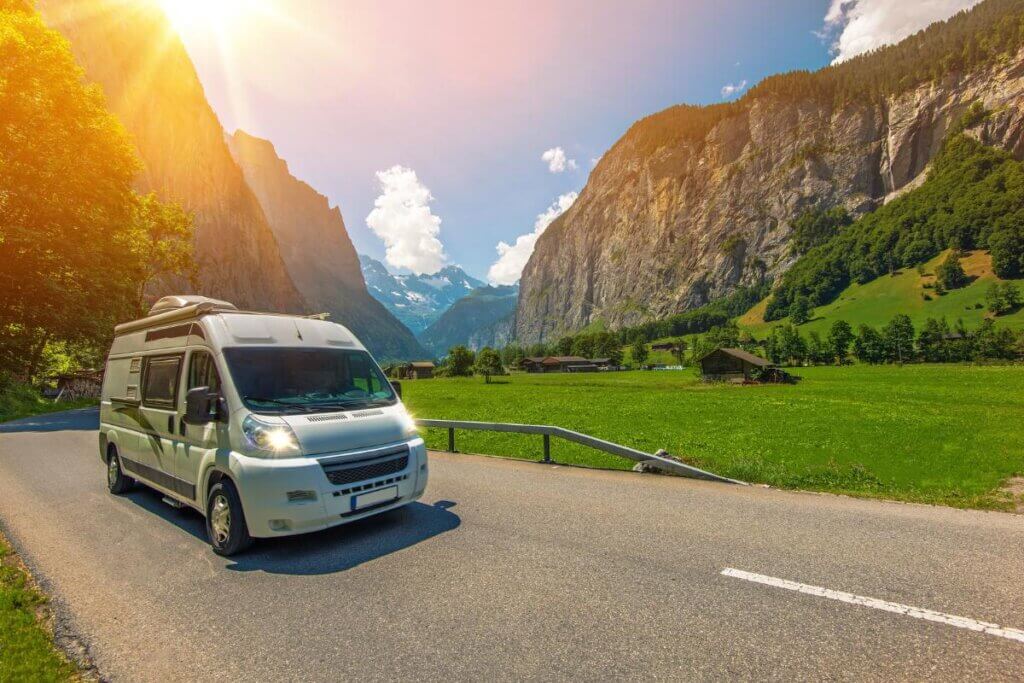
The first step to living an off-grid eco-friendly life is to find an eco-friendly camper van. You will need to look out for things such as gas consumption, size, and electric options.
Think About Gas
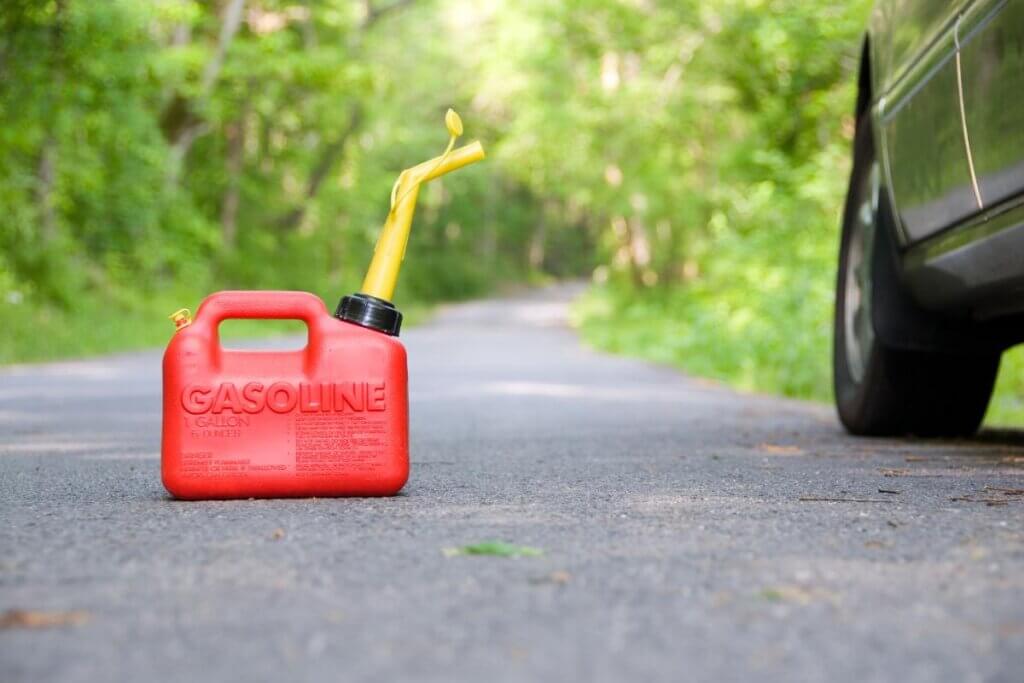
When selecting a camper van, consider the type of fuel it uses. Older vehicles and larger vans generally consume more gasoline, leading to higher emissions.
For a greener choice, look into hybrid or battery-powered camper vans.
For example, the Winnebago EKKO offers a hybrid option, while the Mercedes-Benz EQV is an electric alternative that reduces your reliance on fossil fuels.
Size Matters
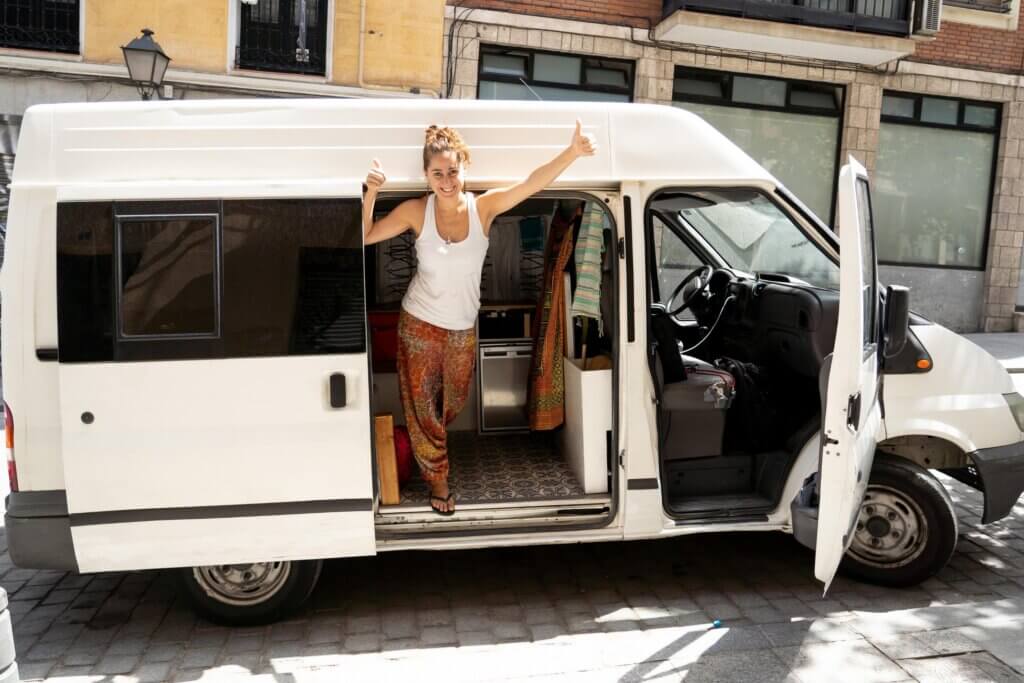
The size of your camper van impacts its environmental footprint. Larger vans require more materials to build and more fuel to operate.
Opting for a smaller, more compact van can reduce the resources needed for construction and decrease fuel consumption, making your travels in your camper van more eco-friendly.
Eco-Friendly Build
There are many ways you can have a safer, healthier, and more eco-friendly camper van build, and here are a few ways to do just that:
- Purchase proper insulation
- Use woods like bamboo or repurposed
- Be aware of paints and finishes
- Use reusable dishes
- Use ec0-friendly sanitary products
Go Green with Camper Van Insulation
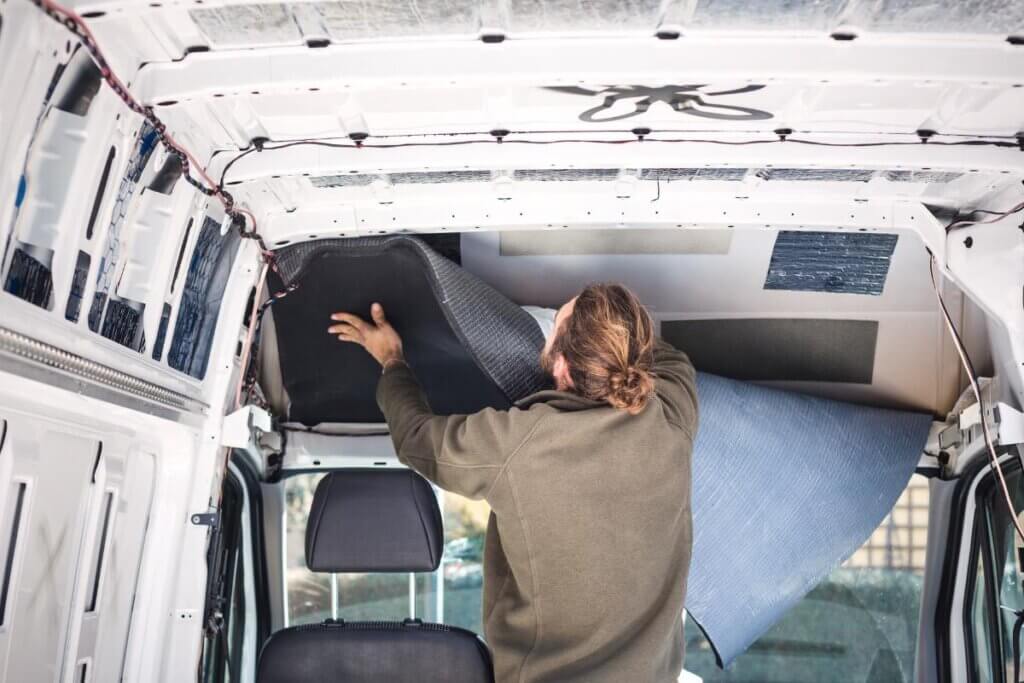
Insulation in your camper van is crucial in maintaining temperature and reducing energy consumption.
For eco-friendly insulation, consider materials like sheep’s wool or recycled denim, which are sustainable and effective.
Avoid our mistake and don’t use traditional fiberglass insulation when building your camper van, which is less environmentally friendly and can be harmful to handle.
Materials Matter
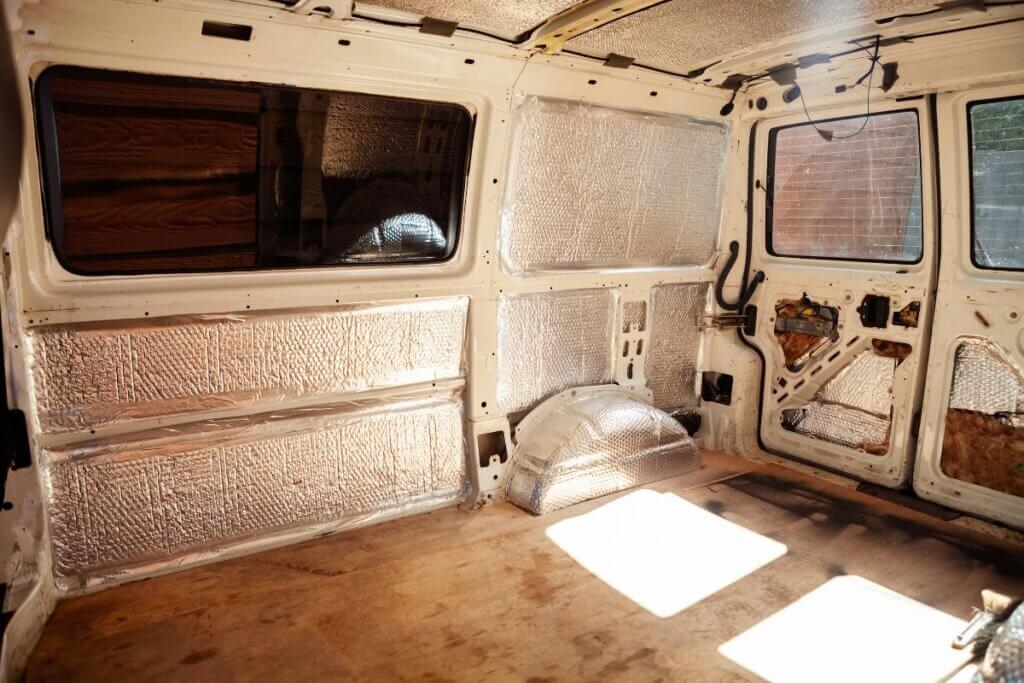
Choosing sustainable materials for your camper van build is essential. Bamboo and reclaimed wood are excellent choices for a van slat bed or cabinets– these woods offer both aesthetics and sustainability.
Bamboo is a rapidly renewable resource, while reclaimed wood reduces the need for new lumber.
For sealants and adhesives, opt for brands like Green Glue and AFM Safecoat that prioritize low environmental impact.
Paints and Finishes
When painting your camper van, select low-VOC (Such as this Swiss Coffee Semi-Gloss or choose one of many colors from Rodda Paint) or zero-VOC paints. VOCs (volatile organic compounds) are harmful chemicals that can contribute to air pollution and health issues.
Low-VOC and zero-VOC paints reduce these emissions, making them a more eco-friendly choice.
Cabinetry
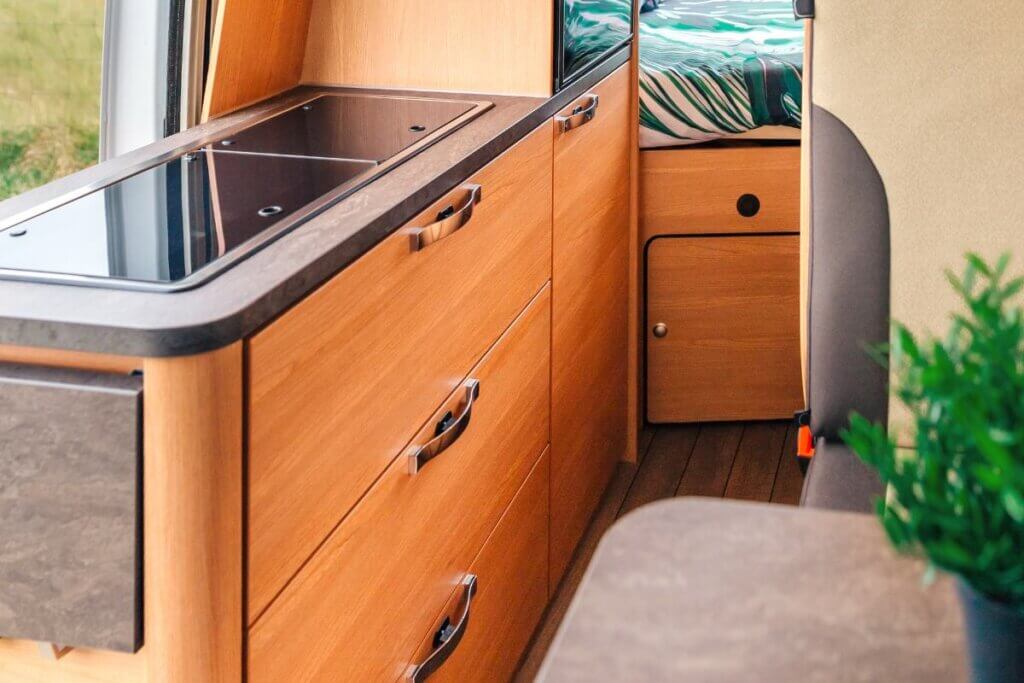
Utilize every available space in your camper van to embrace a minimalist lifestyle, which reduces the need for excessive resources.
Build camper van cabinetry and storage solutions with bamboo or recycled wood, and use low-VOC finishes to keep your interior eco-friendly.
Water Usage
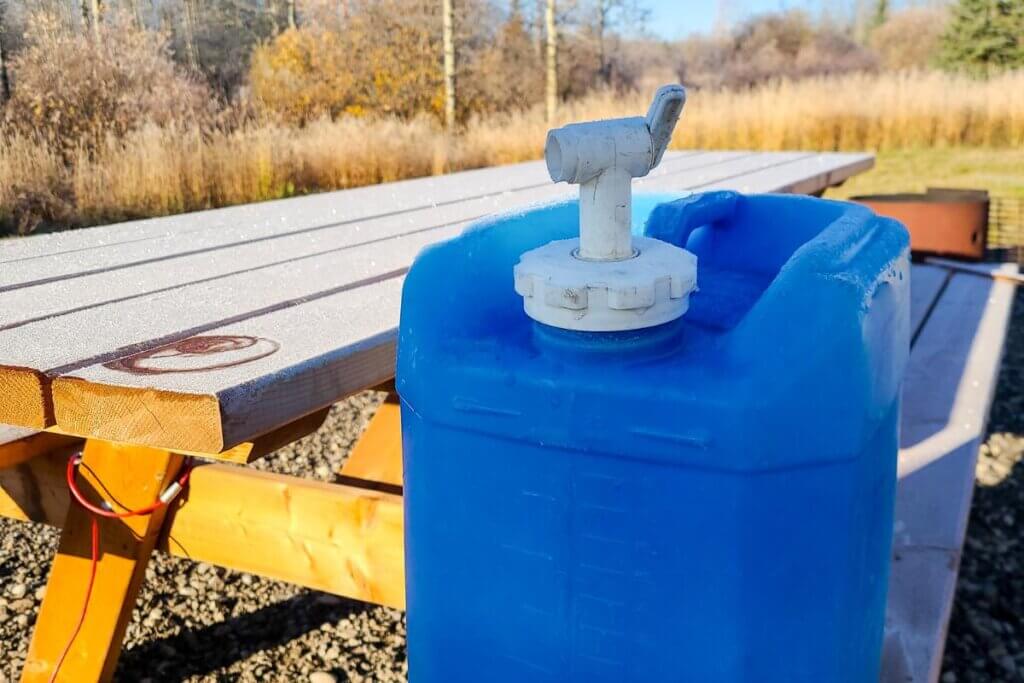
Efficient water use is crucial for an eco-friendly camper van lifestyle. Install low-flow water systems for your camper van sinks, showers, and laundry machines to minimize water consumption.
Consider a composting toilet like the Evo Camping Toilet, which significantly reduces water use compared to traditional toilets.
Always dump wastewater in appropriate locations to prevent environmental contamination.
Check out our post about Camper Van Toilets for more on-the-go options for travel bathrooms.
Living More Green in Everyday Camper Van Life
It may not cross your mind to use soaps that are eco-friendly or even dish detergent. You can also be greener in your camper van with reusable items such as cups, silverware, and cookware.
Soaps

Use biodegradable soaps for all your cleaning needs, including showering, washing dishes, and laundry. Chemicals in regular soaps can last for years in the ground and can pollute the rivers.
You can find a list of chemicals to avoid at Goodwellsscience.com, and read more about how these chemicals can impact the environment.
Brands like Dr. Bronner’s (for showering) and Seventh Generation for (washing clothes) offer eco-friendly options that break down naturally and are less harmful to the environment.
Need to find a way to do laundry in your camper van? We have a post for just that right here!
Foods

When shopping for food, avoid using single-use plastic bags by bringing your reusable bags like these super cute Wiselife 3-pack reusable grocery bags.
Compost food scraps such as coffee grounds and vegetable peels to reduce waste. Look for local composting programs or community gardens that accept compost donations.
Additionally, using reusable water bottles, coffee mugs, dishes, and utensils helps cut down on single-use plastics and reduces waste.
Power Usage
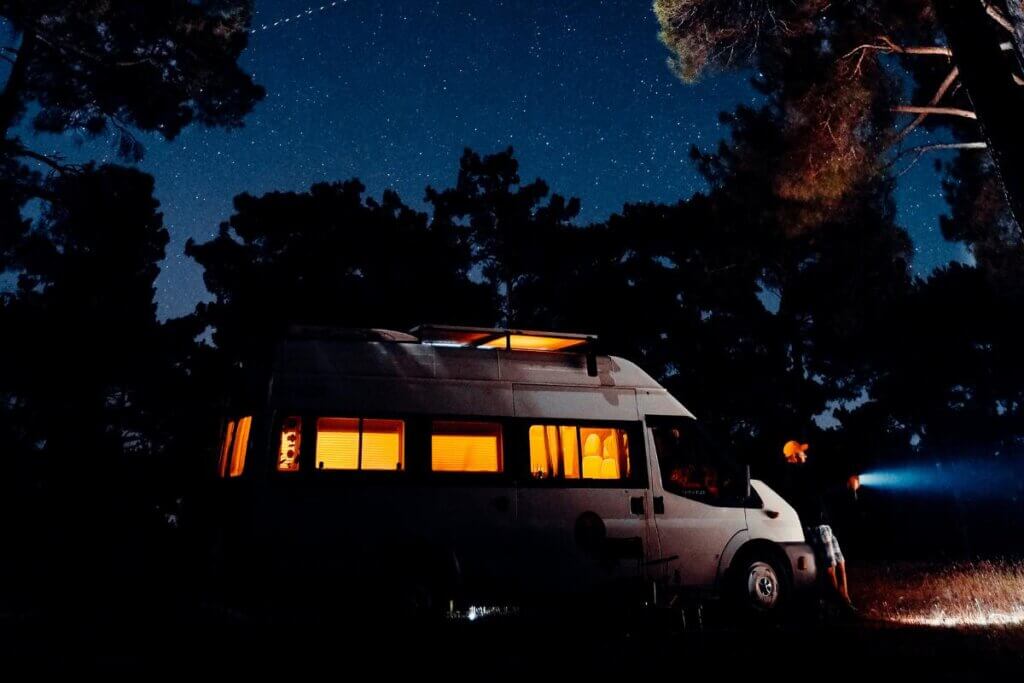
You can also go green with the power you use in your camper van. Low power usage is also a budget-friendly way of living off the grid.
Powering things like lights in your camper van is simple and doesn’t require the use of a ton of batteries. In fact, you can use a solar power system or a car battery to operate everything that uses electricity.
You can even find a way to power a fridge in your camper van with low power usage.
Batteries
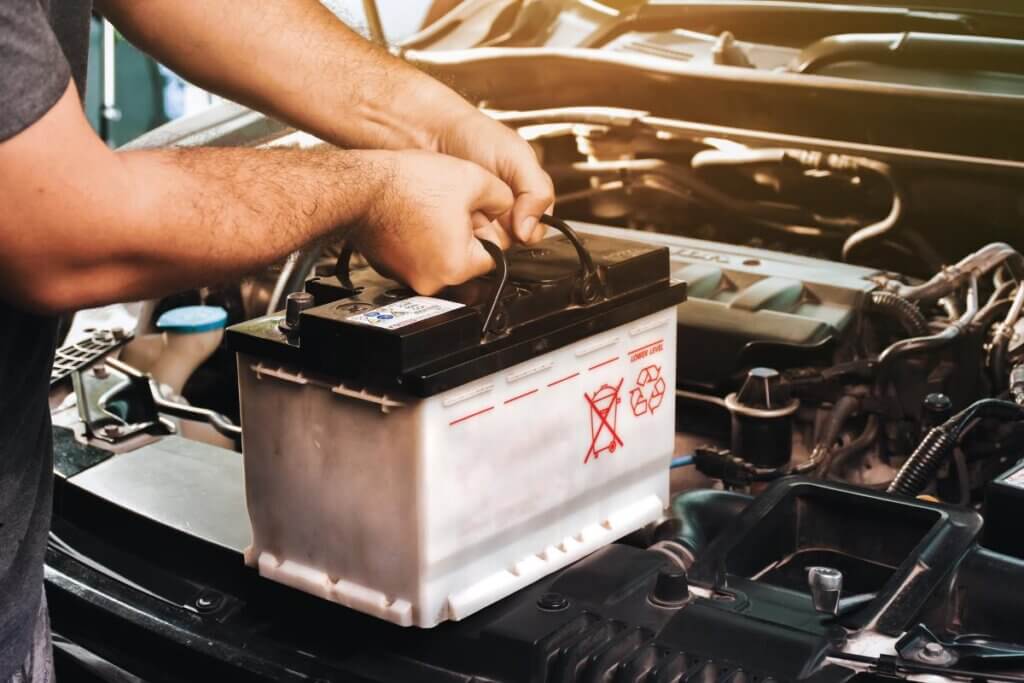
When it comes to powering your camper van, choose eco-friendly battery options.
Lithium-ion batteries, like those from Battle Born or Bougue RV, are more efficient and have a longer lifespan compared to traditional lead-acid batteries.
Solar Power
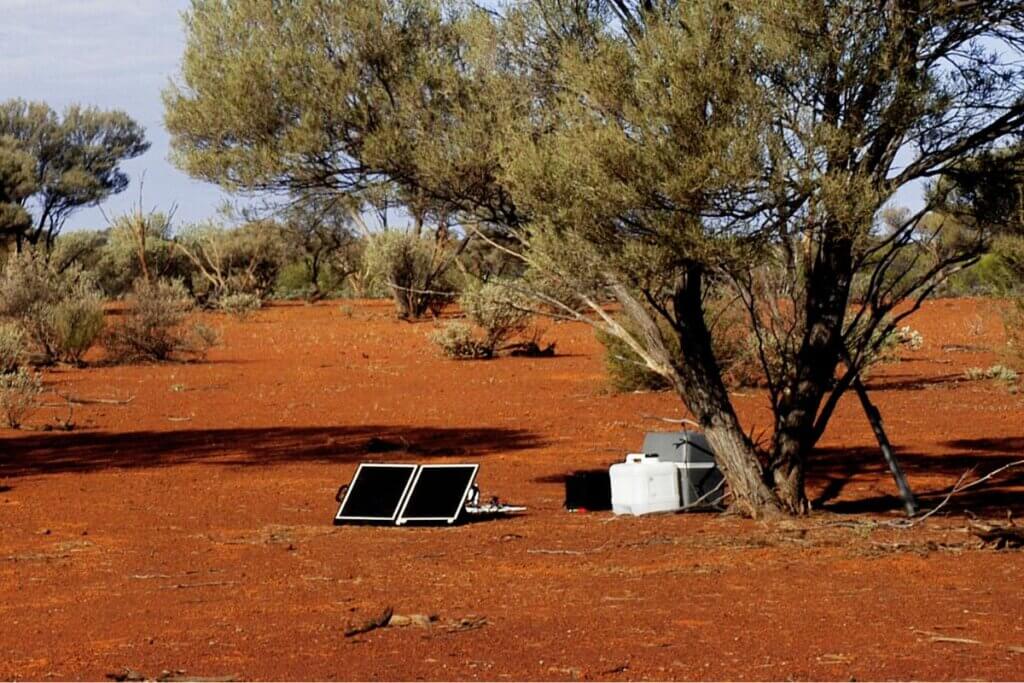
Solar power is the most sustainable way to meet your camper van’s energy needs.
It harnesses the sun’s energy to provide a clean, renewable power source.
For top-notch solar setups, consider products from Jakery which offer high-efficiency solar panels and comprehensive solar kits designed for camper vans.
In Conclusion
Being eco-friendly in a camper van involves thoughtful choices from the initial purchase to daily living practices.
By selecting an eco-friendly van, using sustainable materials, conserving water, and opting for renewable energy sources, you can enjoy your travels while minimizing your environmental impact.

